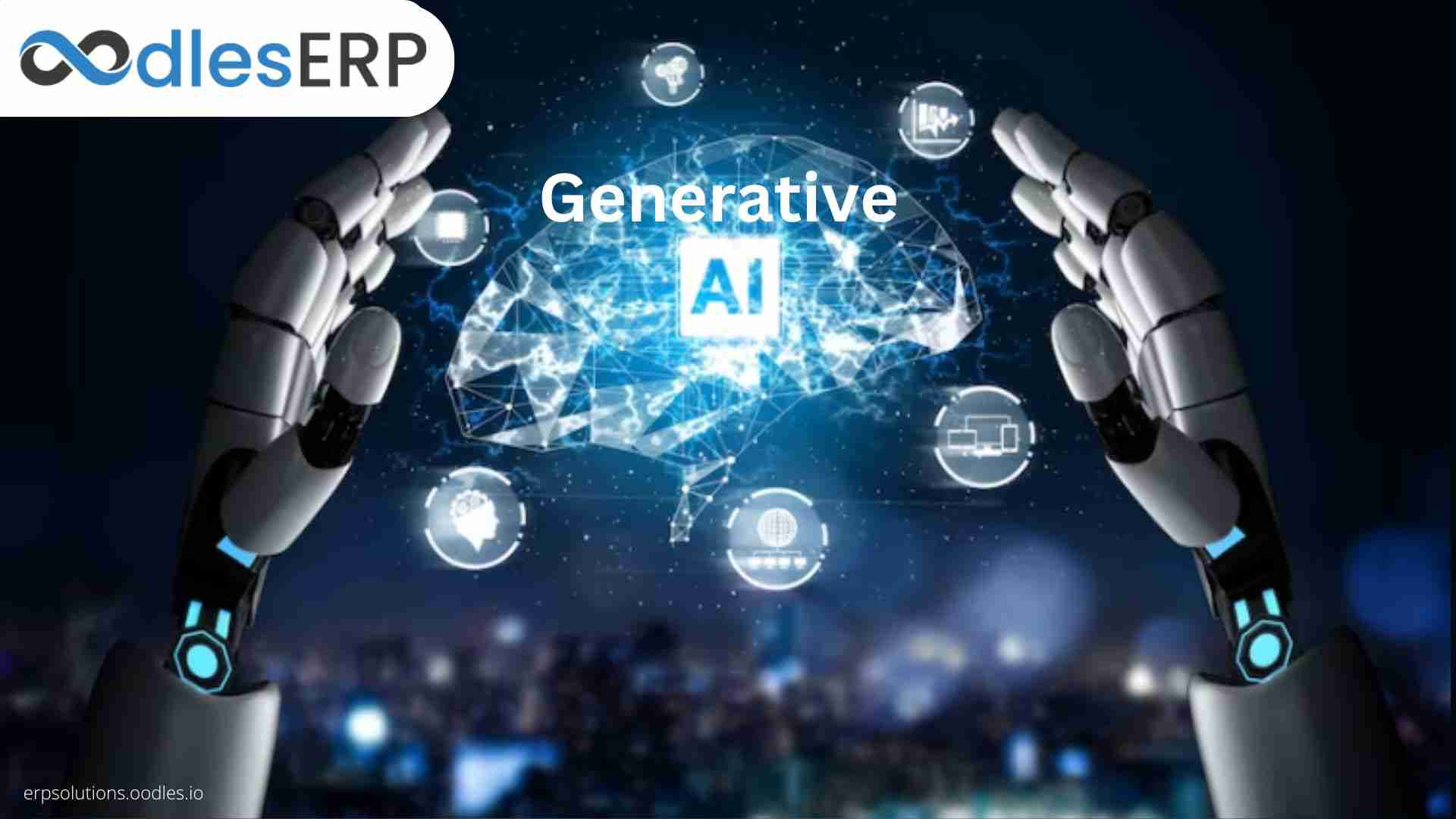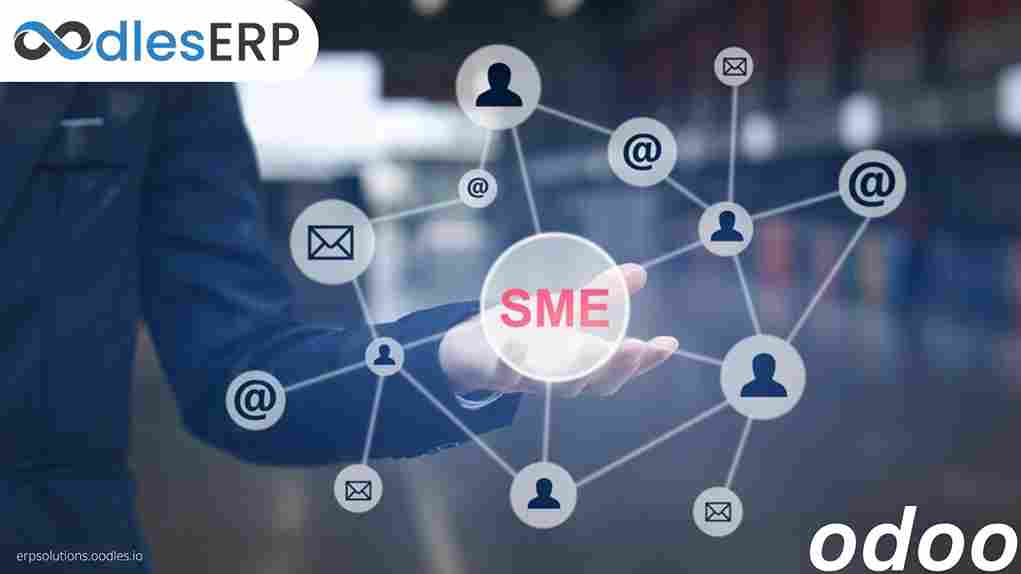ERP systems have evolved tremendously over recent years, incorporating new technologies to help businesses efficiently run their operations with minimal complexities. Since the emergence of the fourth industrial revolution, businesses have embraced next-gen technologies to future-proof their ERP systems. Besides, it has become increasingly important to keep pace with the rapidly evolving technology landscape to sustain the cut-throat market competition.
The modern-day ERP systems are equipped with cutting-edge technologies like IoT, cloud, artificial intelligence, blockchain, and RPA. That being said, artificial intelligence, in particular, has made a significant impact across the global ERP landscape.
In this blog post, we shall explore the significance of generative AI for enterprise resource planning and learn how it is going to revolutionize the ERP industry.

Also, Read Open Source Technologies For Affordable ERP Development In 2024
What Is Generative AI?
Generative AI is a subset of artificial intelligence that has gained momentum for its ability to autonomously create, design, and optimize data-driven solutions. It focuses on generating novel content or data which is entirely unique and not explicitly sourced from the input data on which it was trained. Unlike other forms of AI, generative AI uses probabilistic frameworks, neural networks, and various algorithms to learn patterns and structures within the data they are trained on. Furthermore, this learned information is used to generate fresh content.
The content produced using generative AI models is similar to the training data but possesses unique characteristics, making it original and plagiarism-free. An apt example of generative AI is ChatGPT, an AI chatbot developed by openAI that follows users’ instructions and provides detailed responses in the text format.
Its Significance For ERP
The rapidly evolving technology landscape and the increasing complexity of business needs have necessitated a transformation within modern-day ERP systems. That said, generative AI is a disruptive force that is poised to revolutionize ERP systems and redefine how businesses operate in the digital age. In the following section, you will explore the key areas where generative AI could be particularly useful from the standpoint of enterprise resource planning.
Business Forecasting and Decision-Making
One of the key areas where Generative AI is making a profound impact is in enhancing ERP systems' predictive capabilities. By analyzing vast amounts of historical data, Generative AI models can forecast trends, anticipate demands, and provide actionable insights. This empowers businesses to make informed decisions, optimize inventory management, and preemptively address potential issues, thereby mitigating risks and maximizing efficiency.
Automating Repetitive Tasks
Generative AI also helps automate and optimize complex repetitive tasks within ERP systems. Generative AI powered-ERP systems can learn from data patterns, automate repetitive jobs, and carry out operations more quickly and accurately by utilizing machine learning algorithms. This automation reduces errors and frees up human resources from repetitive work, which boosts output while keeping costs down.
Also, Read The Importance of Custom ERP Software For The Mining Industry
Personalization and Customization
The way that generative AI promotes personalization and customisation has a powerful impact on ERP systems. These AI-driven systems may customize experiences, provide individualized solutions, and modify offers to suit specific needs by examining user preferences and behavior. This degree of personalization increases client happiness and loyalty, which promotes corporate expansion and competitive advantage.
User Experience
Furthermore, Generative AI empowers ERP systems to facilitate natural language interactions and intuitive user interfaces. Through natural language processing and generation, these systems can comprehend and respond to human queries, simplifying complex tasks and enabling seamless communication between users and the ERP platform. This user-friendly interface fosters accessibility, accelerates adoption, and enhances overall user experience.
Possible Setbacks
Even though generative AI has enormous potential to transform ERP systems, there are still obstacles and challenges to be addressed. Data privacy concerns, bias in AI systems, and the requirement for strong cybersecurity defenses are important issues that call for careful consideration and all-encompassing solutions. Furthermore, in order to establish credibility and preserve integrity, it is crucial to guarantee openness, responsibility, and effective implementation of AI in ERP systems.
Also, Read Intelligent ERP Solutions To Revolutionize The Healthcare Industry
Closing Remarks
Generative AI has emerged as a game changer for enterprises that aim to boost their productivity levels by automating their mission-critical workflows. Its capacity to comprehend patterns, predict outcomes, and generate novel content has unlocked a new realm of possibilities for ERP systems, fostering efficiency, adaptability, and innovation.
At Oodles, we provide end-to-end ERP application development services to streamline complex business processes and help enterprises automate their mission-critical business functions. Our seasoned developers specialize in building scalable enterprise solutions for the diverse business needs of our clients. We use open-source software platforms like Odoo, OFBiz, Timefold/OptaPlanner and ERPNext to develop custom enterprise solutions at cost-effective rates. For more details, contact us at [email protected].







